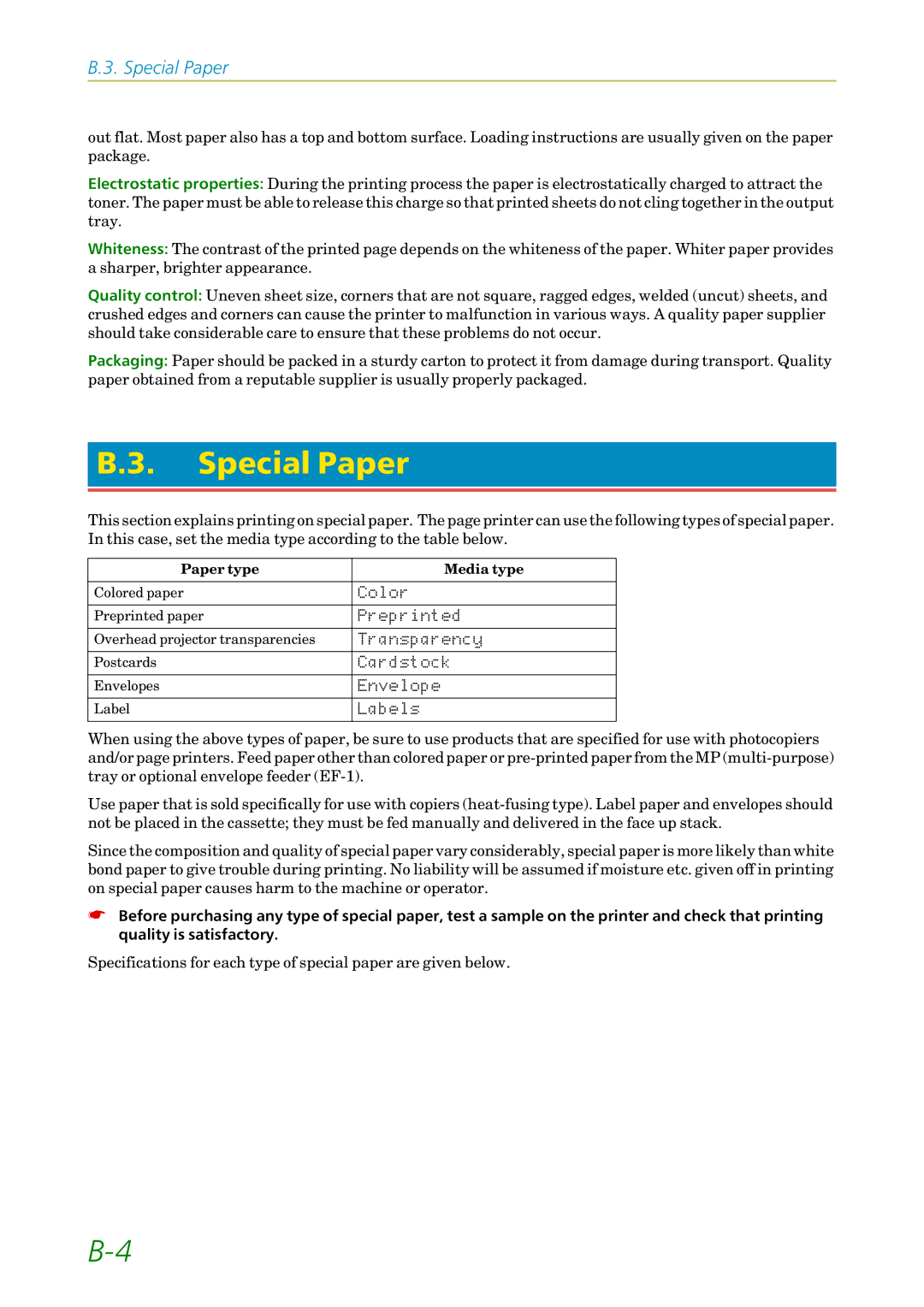
B.3. Special Paper
out flat. Most paper also has a top and bottom surface. Loading instructions are usually given on the paper package.
Electrostatic properties: During the printing process the paper is electrostatically charged to attract the toner. The paper must be able to release this charge so that printed sheets do not cling together in the output tray.
Whiteness: The contrast of the printed page depends on the whiteness of the paper. Whiter paper provides a sharper, brighter appearance.
Quality control: Uneven sheet size, corners that are not square, ragged edges, welded (uncut) sheets, and crushed edges and corners can cause the printer to malfunction in various ways. A quality paper supplier should take considerable care to ensure that these problems do not occur.
Packaging: Paper should be packed in a sturdy carton to protect it from damage during transport. Quality paper obtained from a reputable supplier is usually properly packaged.
B.3. Special Paper
This section explains printing on special paper. The page printer can use the following types of special paper. In this case, set the media type according to the table below.
Paper type | Media type |
|
|
Colored paper | &RORU |
|
|
Preprinted paper | 3UHSULQWHG |
|
|
Overhead projector transparencies | 7UDQVSDUHQF\ |
|
|
Postcards | &DUGVWRFN |
|
|
Envelopes | (QYHORSH |
|
|
Label | /DEHOV |
|
|
When using the above types of paper, be sure to use products that are specified for use with photocopiers and/or page printers. Feed paper other than colored paper or
Use paper that is sold specifically for use with copiers
Since the composition and quality of special paper vary considerably, special paper is more likely than white bond paper to give trouble during printing. No liability will be assumed if moisture etc. given off in printing on special paper causes harm to the machine or operator.
☛Before purchasing any type of special paper, test a sample on the printer and check that printing quality is satisfactory.
Specifications for each type of special paper are given below.
